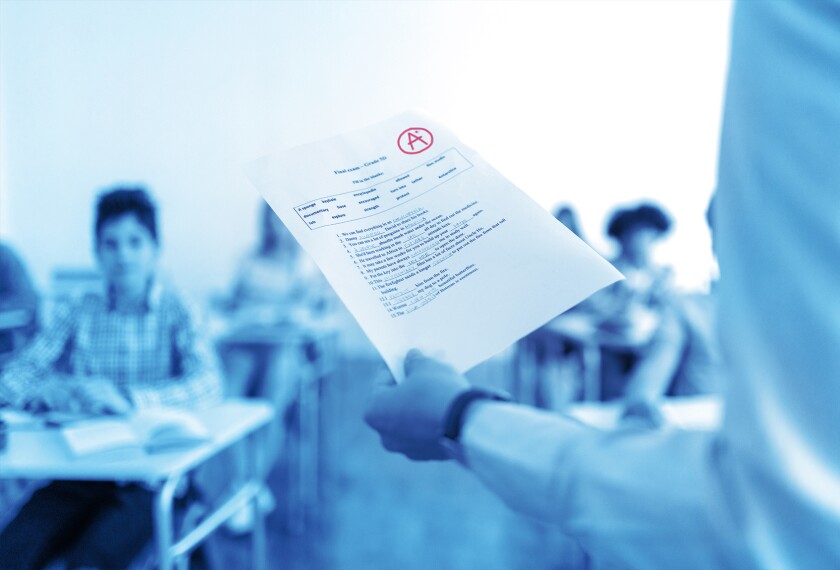Amid renewed allegations of cheating on statewide standardized tests in Texas, the Texas Education Agency is pressing ahead with plans for tighter testing security, while stressing that it uses a high threshold in making charges against schools or school districts that their students cheated on the state’s tests.
Debbie Graves Ratcliffe, the communications director for the agency, said that a Dallas Morning News series published last week was correct in saying that the state has cleared many school districts of possible charges of cheating, despite a state investigation that found highly irregular results on tests given during the 2004-05 school year school year. (“Texas Launches Cheating Probe,” Jan. 11, 2005.)
The state agency has exonerated those districts after hiring Caveon, a Midvale, Utah-based firm, in 2005 to investigate those with irregular test results. But the Dallas newspaper hired George Wesolowsky, a professor at McMaster University in Canada who studies cheating on tests, to work with the paper in analyzing test scores in both 2005 and 2006.
Read the related story,
“The agency has cleared 98 percent of the schools in its recent round of investigations, in most cases because school officials did not volunteer knowledge of improprieties. Many of those schools were found to have widespread cheating in The News’ analysis,” wrote reporters Joshua Benton and Holly K. Hacker in the first installment of the series, published on June 3.
In an interview last week, Ms. Ratcliffe said, “It’s true that we’ve cleared a majority of the schools that were flagged by Caveon.” But she added that the state agency must use caution in making charges that districts have permitted cheating.
“When we move on a case, we have a higher burden of proof than the newspaper does. If we issue sanctions, invariably that case will go to court,” she said.
At the same time, she said, investigations of breaches in test security in eight districts or charter schools are still open. “There are some schools and individuals,” Ms. Ratcliffe said, “that are absolutely going to be sanctioned.”
Planned Improvements
On May 31, four days before the Dallas Morning News began publishing its series, the Texas Education Agency announced a plan to improve test security that includes using a statistical analysis that detects unusual answer patterns and an examination of erasures of test answers. The system will be created over the next year and piloted during the 2008-09 school year.
“We knew the series was coming out, but [the announcement] has as much to do with the legislative session ending on May 31,” Ms. Ratcliffe said.
She noted that a bill now on the desk of Texas Gov. Rick Perry, a Republican, has some test-security provisions in it. For example, it says that a superintendent or a director of a regional education service center is compelled to make a report to the state if he or she has “reasonable cause to believe” that an educator has violated testing-security procedures.
If Mr. Perry signs the bill by June 17, or permits it to become law by not vetoing it by then, the measure also will replace the high school exit exam that is part of the Texas Assessment of Knowledge and Skills, or TAKS, with 12 end-of-course exams that students will take in grades 9-11. (“Texas Passes Bill to Require End-of-Course Exams,” June 6, 2007.)
Ms. Ratcliffe said the agency is expected to announce additional test-security measures within a week. “We think the majority of educators and students involved in the testing program are honest and following the rules,” she said. Additional improvements are needed, however, so that “the public has complete confidence in the system,” she said.
The reporters for the Dallas Morning News say their newspaper’s study “contradicts the Texas Education Agency’s stance that cheating on the TAKS is extraordinarily rare and that the agency has done a good job policing it.”
The series included analysis of 2005 and 2006 TAKS answer sheets from grades 3-11 and says that the scores of more than 50,000 students show evidence of cheating. Suspicious scores were concentrated on the 11th grade tests, the state’s high school exit exams.
In most cases, the newspaper says, students appear to have copied from each other in pairs or small groups. But one Houston charter school had 80 percent or more of its answer sheets flagged by researchers for cheating.



